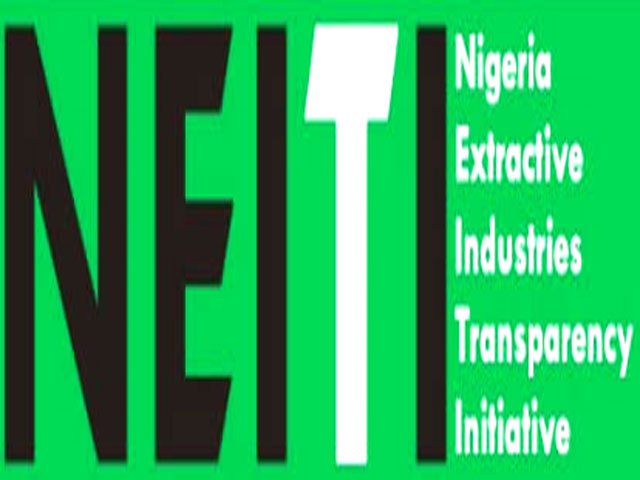The Nigeria Extractive Industries Transparency Initiative, NEITI, Tuesday, stated that for eight years, the Nigerian National Petroleum Corporation, NNPC, the Nigerian Petroleum Development Company, NPDC, and companies operating in the oil and gas industry in Nigeria are yet to remit $22.06 billion and N481.75 billion to the Federation Account.
In a report presented at its National Conference on Remedial Issues in Abuja, NEITI stated that Nigeria lost $3.038 billion and N60.997 billion from crude oil production, production and transportation, while unreconciled differences arising from the allocation, sale and remittance of proceeds from domestic crude oil allocated to the NNPC amounted to N317.475 billion.
NEITI, in providing an update on its remediation efforts in its various audits of the extractive industry, stated that these issues arose from its audits of the petroleum industry between 2010 and 2015, but which had remained unresolved till today.
Giving a breakdown of the unremitted revenue, NEITI noted that oil and gas companies involved in production and companies involved in offshore processing contracts were yet to remit $152.69 million and N5.2 billion and $498.6 million respectively; the NPDC was yet to remit $2.38 billion and N51.95 billion, while the NNPC unremitted revenue amounted to $19.04 billion and N424.57 billion.
The report further noted that the NPDC was yet to remit $1.02 million and N934.02 million; oil and gas royalty and Petroleum Profit Tax yet to be remitted stood at $457.91 million and $1.69 billion; while unremitted withholding tax, Value Added Tax, Pay As You Earn, PAYE, and Education tax amounted to N12.54 billion, N486 million, N42.33 million and N15.7 billion respectively.
Others are unremitted Niger Delta Development Commission, NDDC, levy and cash calls paid for transferred Oil Mining Leases, OML, not refunded stood at $81.08 million and N19.835 billion, and $148.278 million and N2.42 billion respectively.
On the part of the NNPC, the report stated that the corporation was yet to remit domestic crude oil proceed of N418.993 billion; balance of eight OMLs, valued by NNPC at $1.8 billion, transferred from Shell Petroleum Development Company Joint Venture to NPDC $1.7 billion; Nigerian Liquefied Natural Gas, NLNG, unremitted dividends $16.899 billion; while pending refund due to over-recovery of subsidy under the Petroleum Support Fund scheme in 2012, N3.98 billion.
Others, according to the report, is that the cash calls refunded to the National Petroleum Investment Management Services, NAPIMS, but not remitted, $424.185 million; and pipeline transportation fee paid by international oil companies unremitted by NNPC, $16.478 million and N1.597 billion.
In the area of losses to the federation, the report stated that a loss of N90.176 billion was recorded when at the point of remittance into the Central Bank of Nigeria, CBN – NNPC domestic crude oil naira accounts, the NNPC based remittance on another valuation report that used a revised pricing option which was often lower than the initial valuation.
In addition, the report stated that the NNPC subsidiary, Petroleum Products Marketing Company, PPMC, reported $1.528 billion as losses due to crude theft, sabotage and deferred production, while the NNPC declared N60.997 billion as losses due to crude and product losses.
However, responding on behalf of the NNPC, Mr. Godwin Okonkwo, Managing Director, Capital of the NNPC, said most issues raised by NEITI in its various audits have been addressed by the corporation and wondered why NEITI keeps repeating these issues.
Specifically, Okonkwo said the NNPC had consistently remitted NLNG dividends to the CBN, who had disbursed same to the Ministry of Finance for onward disbursement to the Federation Account.
Also commenting on the report, Mr. Waziri Adio, Executive Secretary of NEITI, stated that the agency had not made much progress in addressing the gaps inherent in the extractive industries, because it lacks the power to enforce remediation activities in the industry.
Adio said this was as a result of the fact that NEITI lacks the powers to punish offenders, is the least empowered to influence actions and enforce its findings; while in most cases, the individuals that attend its remedial meetings from various government agencies or companies are low level staff and are not empowered to make enforcement decisions.
According to Adio, remediation is too critical to be left to NEITI, which at present, does not have much power in the enforcement space, while he bemoaned the fact that people with power to sanction and make changes in the industry were not interested in addressing the issue.
Adio noted that NEITI and the Inter-Ministerial Task Team, IMTT, had made efforts at remediation issues, but had not been able to do much and achieve meaningful progress because of these structural challenges.
However, he insisted that the IMTT would not be scrapped but would be strengthened, by engaging people that have the powers to compel action from actors, such as the vice president or other persons.

